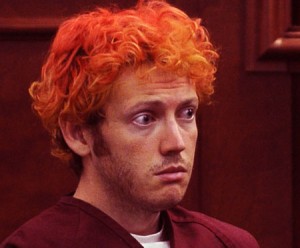Could Alleged Killer James Holmes’ Psychiatrist Be Liable?
Following the tragic Colorado shooting during the premiere of “The Dark Knight Rises,” accused gunman James Holmes is now awaiting trial. And if you were waiting for more proof of his instability, the psychiatrist who was treating him had voiced her concern – for everyone around Holmes, that is.
Lynne Fenton, a psychiatrist at the University of Colorado, had Holmes as a patient prior to the shooting, according to court documents. Fenton was apparently pretty disturbed by Holmes and contacted members of the school’s behavioral evaluation and threat assessment team in early June. Unfortunately, no further action was taken because Holmes had already started the process of dropping out of school.
 The former doctoral student’s alleged rampage resulted in the deaths of 12 people and 58 wounded. Holmes has been charged with murder and attempted murder, along with two weapons charges. Ironically, Fenton’s concerns came well before the July 20 massacre. However, university officials never contacted the police and the evaluation team never followed up because they no longer had control over Holmes on account of him leaving the doctoral program.
The former doctoral student’s alleged rampage resulted in the deaths of 12 people and 58 wounded. Holmes has been charged with murder and attempted murder, along with two weapons charges. Ironically, Fenton’s concerns came well before the July 20 massacre. However, university officials never contacted the police and the evaluation team never followed up because they no longer had control over Holmes on account of him leaving the doctoral program.
Fenton’s knowledge brings up an interesting issue regarding therapist liability. Many may not be aware that therapists actually owe a duty to warn others when they are aware or have reasonable suspicion that their patient may harm another person. This is one of the few situations in which a psychiatrist can break doctor-patient confidentiality. In fact, failure to do so can leave the therapist open to civil lawsuits from the victims and, in some cases, criminal prosecution.
While this exception sounds like a complete betrayal of doctor-patient confidentiality, it’s actually not as bad as some of you may think. The reason is because there is actually a pretty stringent standard that must be met before shrinks can break confidentiality.
As we all know, the purpose for doctor-patient confidentiality is to ensure that those receiving treatment will feel free to be honest about their issues. This honesty allows them to get better care since the doctor will be able to assess them properly and the patient will know their privacy is protected.
In order for therapists to break confidentiality, their patient must first make a threat against a specific and identifiable person. Second, the therapist must also believe the threat to be real based on their patient’s history and motive.
If this test sounds like a high hurdle to jump, that’s because it is. In Fenton’s case, it’s hard to say whether or not she could be liable for not informing police and/or the victims. There hasn’t been much information released on how much she knew about Holmes’ intention, nor how long she had been treating him. We’ll have to wait until his trial gets rolling to find out more. And make no bones about it; based on her relationship with Holmes, she’s definitely going to get called up by one side or the other.
If it discovered that Holmes told Fenton of his threat to carry out the shooting he’s accused of doing and Fenton should’ve known that he was serious, she could theoretically be facing a litany of lawsuit from the victims. But for now, it’s still too early to tell.


Comments